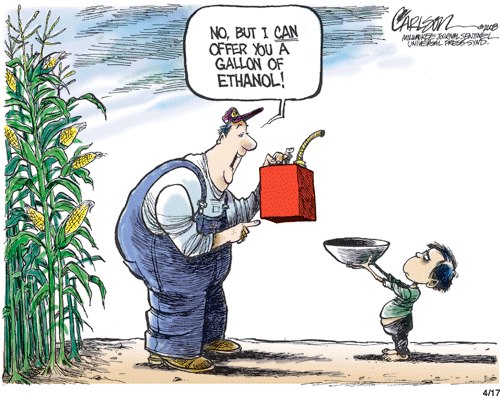Patrick J. Michaels has some good suggestions for the agenda of the new conference on the environment called for by Pope Francis. There is, indeed, always a serious risk of being misled when applying stable principles of moral judgment to transient situations. It is important to be cautious, and to ask all the questions:
The conference has a moral duty to seek and follow the truth, wherever it may lead, even through the thorniest of dilemmas. If crop-based biofuels reduce carbon-dioxide emissions, is it moral for the United States — the world’s largest producer — to burn up half of its corn crop every year? If these fuels indeed result in more carbon dioxide emissions than simply powering automobiles with gasoline would, is it moral to put thousands and thousands of people out of work — and gravely harm the state of Iowa — by shutting down the massive infrastructure that now serves the corn-ethanol industry?
I think that the Holy Father may be hoping to bring a popular scientific conception of “ecology” to bear on the real natural conditions in which humanity can flourish–he speaks of “human ecology” more often than of this or that bit of current consensus among some scientists in certain fields. I have some reservations about the approach, but I hope that an open, careful, slow conversation will emerge.
